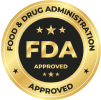Essential for the body to function properly, vitamin b12 plays a central role in many biological processes, including cell multiplication and DNA synthesis. Its ability to contribute to a range of essential functions makes it a substance that should not be overlooked when it comes to maintaining optimal health. This article offers an in-depth exploration of this precious vitamin, its benefits, sources and implications for your health.
Definition
Vitamin b12, also known as cobalamin, is a water-soluble protein that plays a vital role in the formation of red blood cells, DNA synthesis and nervous system function. A vitamin B12 deficiency can lead to various neurological symptoms and a form of anaemia known as megaloblastic anaemia. It is unique in that it contains cobalt, an essential element for thegastric enzyme.
Food sources of vitamin b12
This vitamin is mainly found in animal products. It is therefore crucial for vegetarians and especially vegans to ensure adequate supplementation or eat fortified foods to avoid a deficiency. Here are some major sources:
- Meat such as beef, liver and chicken
- Seafood such as oysters, mussels and crabs
- Dairy products, including milk, cheese and yoghurt
- Eggs, particularly egg yolks, which are rich in vitamin B12
Foods enriched with vitamin B12 can also be an important source for those following an animal-free diet.
Role of vitamin B12 in the body
Vitamin B12 plays a number of roles:
- Red blood cell formation: It helps to make red blood cells and prevents megaloblastic anaemia.
- Cell multiplication: Without B12, our body cannot properly replicate the DNA required for normal cell development.
- Nervous system protection: B12 preserves the myelin sheath around the nerves, which is essential for their proper functioning.
This shows why maintaining adequate levels of this vitamin is essential for preserving many aspects of our health.
Absorption and metabolism
Theabsorption of vitamin B12 is a complex and fascinating process. It begins in thestomach, where hydrochloric acid liberates the vitamin from proteinaceous foods, then binds to intrinsic factor, a gastric enzyme, before being absorbed in the small intestine. Once in the body, it is transported to various tissues where it is used for its many functions.
Signs of vitamin b12 deficiency
A deficiency can be subtle and the first clinical signs can often go unnoticed. Here are several indicators to look out for:
- Persistent, unexplained fatigue
- Pallor or yellowing of the skin
- Vision problems
- Mood changes, such as depression or confusion
- Abnormal sensations, loss of sensation or a ‘tingling’ effect in the hands or feet
If any of these symptoms occur, it is advisable to consult a healthcare professional to assess vitamin B12 status and consider supplementation if necessary.
Health benefits of vitamin B12
Including a sufficient amount in your diet can have a number of benefits, including
- Improved energy and reduced fatigue
- Boosting the immune system
- Improved heart health by regulating levels of homocysteine, an amino acid linked to cardiovascular disease
- Cognitive support, helping to prevent age-related memory loss
- Contributes to a healthy pregnancy and reduces the risk of congenital malformations
Thanks to its multiple facets interacting with our health, cobalamin is a real pillar for maintaining optimal general health.
Managing daily vitamin B12 requirements
Daily vitamin B12 requirements vary according to age, gender and other physiological conditions such as pregnancy. On average, an adult needs around 2.4 micrograms a day. Elderly people, pregnant or breastfeeding women, and people with certain medical conditions may require adjusted dosages. Regular check-ups with a health professional can help to tailor the dose required for each individual in order to make the most of the beneficial effects of this vitamin.









